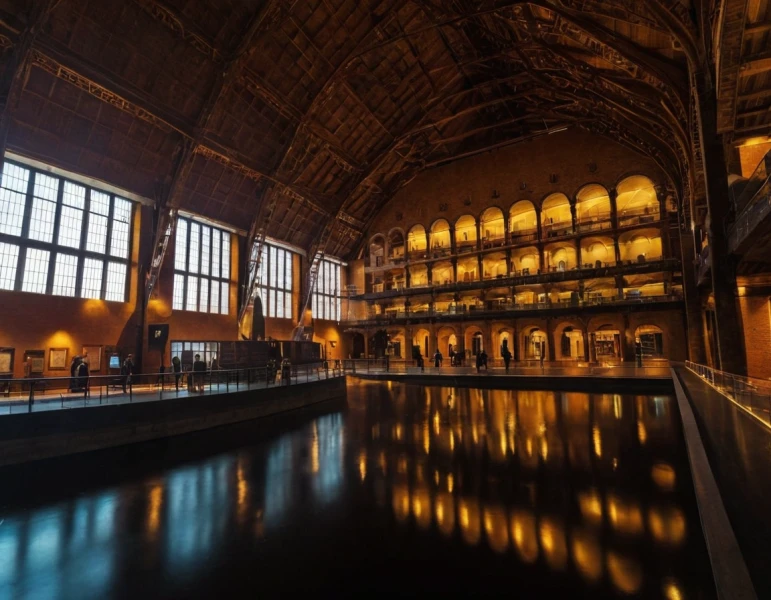Educa UNIVERSITY|SCIENCE AND ENGINEERING
Science Museum of Valladolid: An interactive journey towards scientific knowledge.
Related Masters
Science Museum of Valladolid: An interactive journey towards scientific knowledge.
Do you know what it's really like to live science? Well, I will tell you about my experience with the Valladolid Science Museum, a place that, I assure you, will make you look at science from a completely new perspective. My name is Amadeo Pérez, and I have been lucky enough to visit this museum at various stages of my life, since its inauguration in 2003, until recently, and I guarantee you that I am more and more surprised every time.
What makes the Valladolid Science Museum so special?

I'll tell you one thing: the first thing that strikes you is its architecture. This museum is not just a series of exhibitions enclosed within four walls. No, everything here speaks to you about science from the moment you arrive! Located in what was once a 19th century flour factory, its designers, Rafael Moneo and Enrique de Teresa, took advantage of the original structure and created an impressive modern work. That mix between industrial and contemporary gives it an air of a monument that invites you to explore.
Already from outside, you come across the Plaza Norte, where a statue of Albert Einstein greets you as he seems to reflect sitting on a bench, and if you're the curious type (like me), you'll stop to think: "What calculations will he be doing?" Well, this square is not only home to Einstein; there is also a permanent exhibition dedicated to neurons and their discoverer, Pío del Río Hortega, who was from Valladolid.
The Planetarium: A Journey through the Cosmos
If you visit the museum, you can't miss the planetarium. Believe me, I've been to a few planetariums, but this one takes the prize for being the first digital planetarium in Spain. It's not just anything, we're talking about a totally immersive experience thanks to its 11-meter diameter dome tilted 15 degrees, where images of the universe are projected through six projectors totaling a whopping 11.5 million pixels. If you're as passionate about astronomy as I am, you won't want to leave.
Interactive exhibits: Touch and experience!
Now, what sets the Valladolid Science Museum apart from other museums is its interactivity. It's not about walking around and reading information plaques. Here you can touch, play and experiment. On the first floor you find a lot of temporary exhibitions, and among them, a jewel: a replica of a Renault 4CV car manufactured in Valladolid, considered an asset of cultural interest. But, if you go up to the second floor, things get even more interesting. They explain very clearly how electricity is generated, with models that you can activate to understand how renewable energies work.
What fascinated me the most was the exhibition dedicated to the periodic table of Mendeleev. I remember how as a child, that table seemed like an enigma to me. Here they break it down in such a visual and entertaining way that even my six-year-old nephew understood it. What a marvel!
La Casa del Río: Ecology in action
Another section you can't miss is the Casa del Río. This is a space dedicated to ecology that takes advantage of its location next to the Pisuerga River to teach you everything related to river ecosystems. Here you can see aquariums, terrariums and learn about water cycles, the metamorphosis of frogs, toads and even how climate change is affecting these ecosystems. Personally, I came away with a new perspective on water care and its importance for life on the planet.
Unforgettable experiences for all ages
Now, something that really caught my attention is that this museum isn't just for adults. If you have children or young people, I assure you that they will have a great time. There are activities and experiments where they can interact and learn by playing. For me, seeing the little ones get excited with the physics experiments or discovering how their neurons work was simply spectacular.
Faculties
Trainings
The faculties embrace diverse academic disciplines and fields of study, opening doors to new perspectives and exploring different spheres of wisdom in a constantly evolving world.














